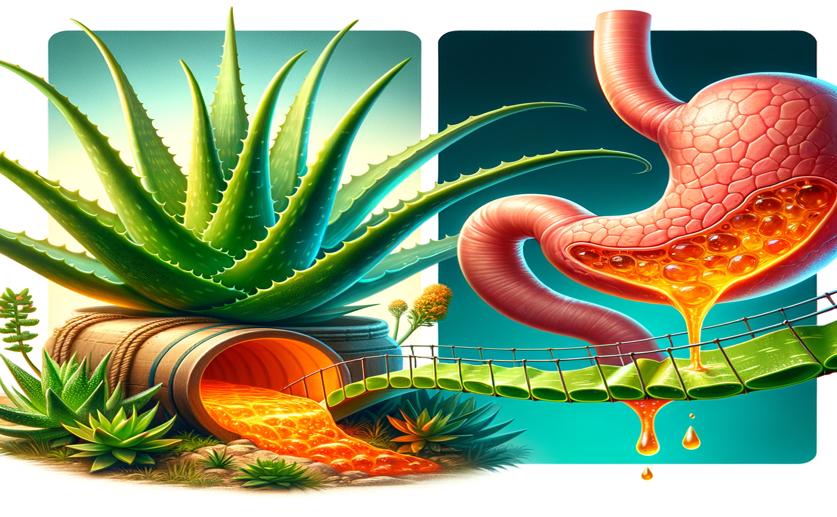
Aloe Vera Gel Eases Stomach Ulcers by Curbing Inflammation
Jenn Hoskins
9th March, 2024

Image Source: Natural Science News, 2024
Key Findings
- In a study at Assiut University, Aloe vera reduced the severity of alcohol-induced stomach ulcers in rats
- Aloe vera increased protective antioxidants and decreased markers of inflammation and cell damage in the stomach
- The findings suggest Aloe vera could be a natural alternative for treating gastric ulcers by targeting oxidative stress and inflammation
References
Main Study
1) Aloe vera gel confers therapeutic effect by reducing pyroptosis in ethanol-induced gastric ulcer rat model: Role of NLRP3/GSDMD signaling pathway.
Published 8th March, 2024
https://doi.org/10.1007/s11033-024-09329-4
Related Studies
2) α-Mangostin suppresses ethanol-induced gastric ulceration by regulating the Nrf2/HO-1 and NF-κB/NLRP3/caspase-1 signaling pathways and gut microbiota.
3) Ethanol causes non-communicable disease through activation of NLRP3 inflammasome: a review on mechanism of action and potential interventions.
4) ALDH2 ameliorates ethanol-induced gastric ulcer through suppressing NLPR3 inflammasome activation and ferroptosis.



 5th February, 2024 | Jenn Hoskins
5th February, 2024 | Jenn Hoskins